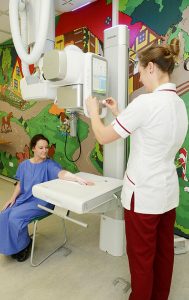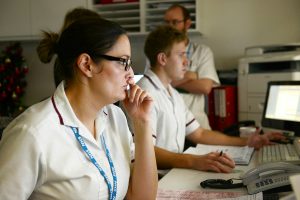Diagnostic radiographers play a key role in large medical teams, helping the NHS to provide a healthcare service that meets our patients’ needs.
Using the latest imaging technology, diagnostic radiographers take high-quality images of the inside of the body using different imaging techniques, such as:
- x-rays
- ultrasound
- fluoroscopy
- CT (computed tomography)
- MRI (magnetic resonance imaging)
- nuclear medicine
- angiography
- mammography
These images are used to diagnose and monitor illnesses or injuries, so patients receive the correct treatment.
What you’ll do
Tasks include:
- assessing patients’ illnesses or injuries
- carrying out radiographic examinations
- producing high-quality images
- evaluating radiographic images
- checking equipment regularly so it can be used safely and accurately
- assisting doctors or surgeons with complex radiological examinations
- supervising and training radiography assistants and students
- adhering to UK radiation legislation
- adhering health and safety legislation
Top skills
You’ll need these skills:
- caring
- decision-making
- organisation
- communication
- team working
- critical thinking
 In this section
In this section